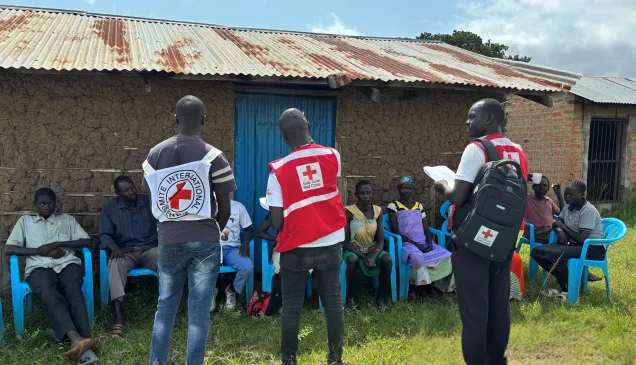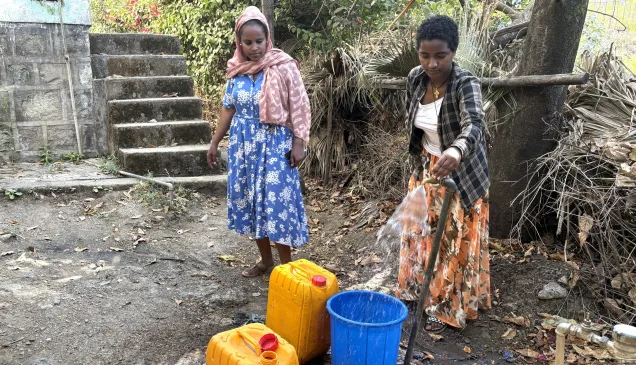How the ICRC is helping Ethiopians repatriated from Eritrea
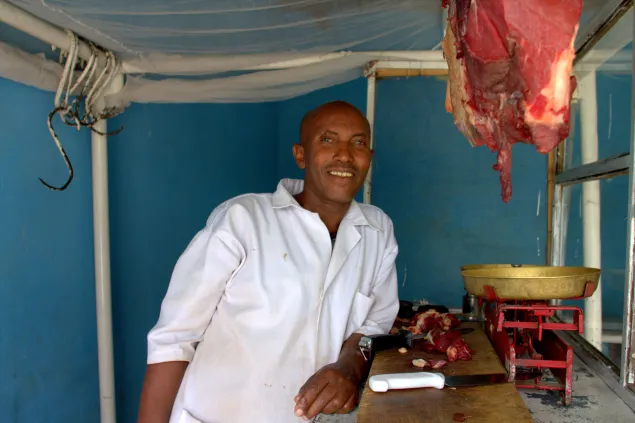
“With the grant provided by the ICRC, I am now running my own butcher shop. I have paid all the debts I had. I can cover my family’s needs. I was able to buy uniforms and other school necessities for my children. Having a job fills me with dignity, and I am no longer afraid of the future.”
Before living in Ethiopia, Birhane was a well-known butcher in Asmara, Eritrea. When he was repatriated to Ethiopia in 2015, he had to leave behind all his belongings. In Ethiopia, he found some odd jobs as a carpenter or butcher for special occasions but the income was insufficient and irregular. He could not even afford to pay the rent of his one-bedroom house. The ICRC’s grant helped him to rent a little shop on a busy street, buy the material he needed - fridge, knives, scales - and do what he loved doing best. Birhane is now happy he is able to feed his family and cover their needs.
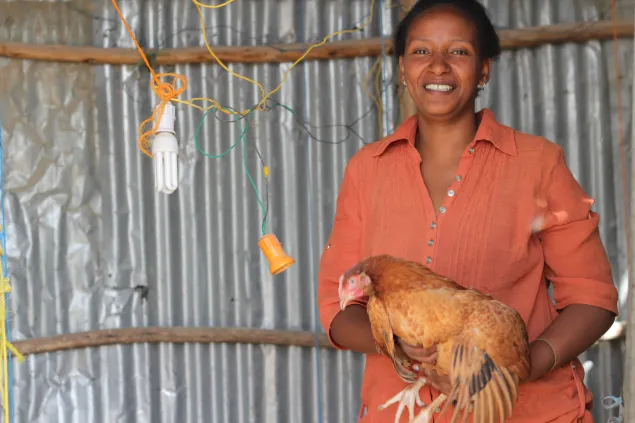
Selamawit Asmelash, poultry farmer
“When my husband abandoned us, I could not send my children to school. On top of that, I had a huge debt to pay with no income at all. I did not know what to do. The ICRC helped me to buy the equipment for my farm. Now my business is growing and my children are happy.”
In March 2015, Selamawit, her husband and their three children were repatriated from Eritrea to Ethiopia. They received a loan and a small plot of land from the Ethiopian micro finance institution in Mekele, to set up a poultry farm. Unfortunately, Selamawit’s husband ran away, taking the entire loan money with him. Selamawit was left alone with her three children and a small plot of land which the government would take it back if it wasn't developed. The ICRC provided her with a grant which enabled her to buy 200 chickens, a refrigerator, a generator, feeding plates and medicine for the chickens. She has also opened a small shop which she keeps replenishing with new products.
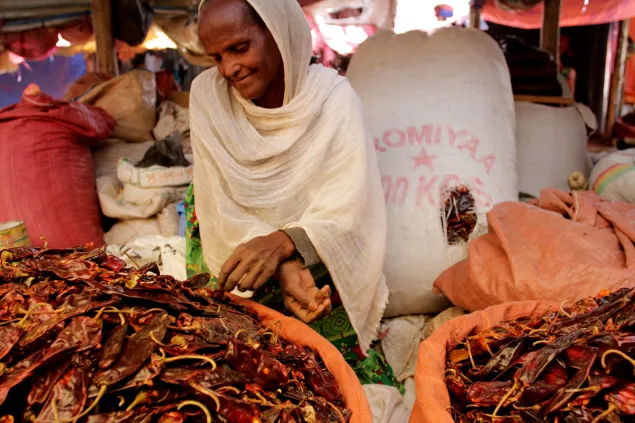
Leteyesus Teklu, market seller
“Selling on the streets is degrading for a woman of my age, especially when one is dependent on an uncertain weather. The ICRC’s grant allowed me to rent a space in the central market. I am happy to have my own space. It gives me dignity and fills me with pride to have this little piece of the market all to myself. My income is slowly but surely increasing.”
Leteyesus was struggling to survive and feed her four dependents in Mekelle, Ethiopia, after their repatriation from Eritrea. She tried selling grains on the street but life was too uncertain. The ICRC helped her buy more grains and spices, so that she could expand her business and she was even able to rent a space in the covered market. She is now a seller in the main market of the capital city of the Tigray region, living her life with dignity.
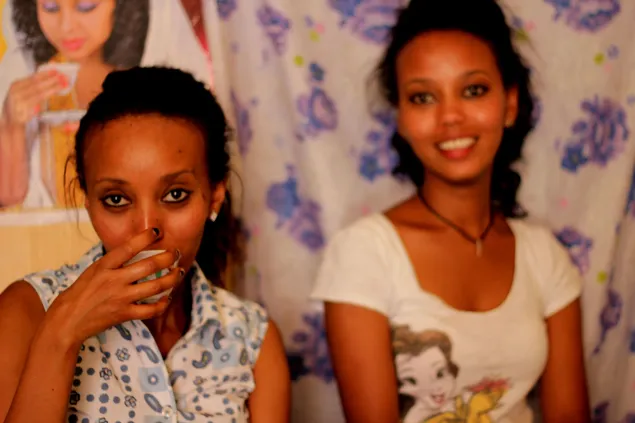
Milen and Selamawit Hagos, coffee shop owners
“Thanks to the support we received from the ICRC, our coffee shop is doing well, in a busy area in Mekelle town. We have regular customers from the entire neighbourhood. We also deliver goods and our income is increasing every month. We are thinking about opening a restaurant.”
The two sisters, Milen and Selamawit Hagos, were repatriated from Eritrea in 2016. At first, they found jobs as waitresses but their income was barely enough to pay their rent. They could not support their mother and younger sister who relied on them. The ICRC’s support enabled them to rent a small coffee shop, buy the necessary equipment and start their business. Their café is successful and they are gaining a good reputation in the neighbourhood.
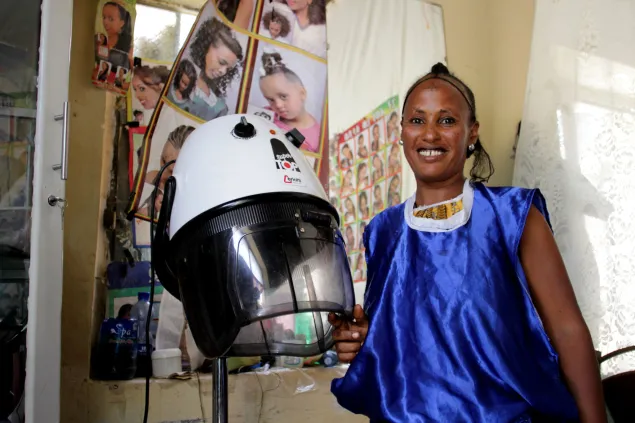
Lemlem Mekuria, hairdresser
“In Eritrea I used to make traditional braids. I have done that all my life. When I first arrived in Mekelle, I tried to do it from my little house, but nobody knew me and I did not have any customers. I did not know the way forward and had no solution on how to feed and support my three children. Thankfully, the ICRC provided me with a grant and I was able to buy the required equipment, making my business attractive to the local customers. My income has increased since then. I am now a successful and highly regarded hairdresser in the neighbourhood.”
Lemlem has been able to buy a professional hair dryer, products and tools for her business. Now she creates modern and traditional hairstyles, making her popular in the neighbourhood.. She is saving up to pay for her son’s training to become an electrician.
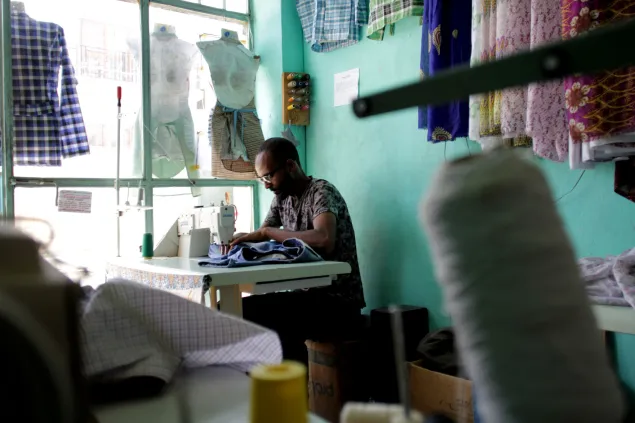
Abdulwassie Mohammednnur, tailor
“I had nothing but the ICRC helped me purchase a sewing machine, an overlock machine and some basic equipment to start my shop. I am now a proud tailor. I even hired someone to help me!”
Abdulwassie was reportedly detained and imprisoned in Eritrea before being repatriated to Ethiopia in 2015 with his wife and four children. He knew how to weave and sew, but had no money at all to start his own business. The ICRC’s grant helped him start off, and now he is able to save a little money. His wife has just given birth to their fifth child making Abdulwassie a proud father.
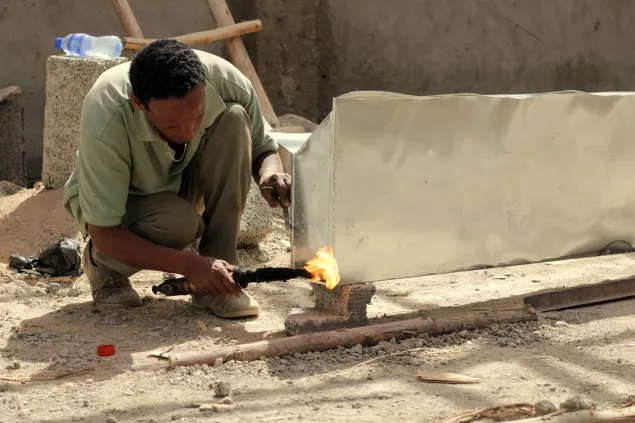
Yohannes Teklehaimanot, metal worker
“I could not have started my business without help. I had no money at all to buy the necessary tools and material. The ICRC has helped do this. I now have work all year-round.”
Yohannes builds and repairs rain water drainage pipes. He had all the skills and experience, but no money. Starting from scratch, in an unknown town, with three children and a wife to feed, seemed impossible. Metal sheets are very expensive and the work is only paid once the job is completed. The ICRC provided him with the necessary tools and equipment to start working on construction sites. He is now completely autonomous and can support his family.
In 2017, productive grants were provided by the ICRC to Ethiopian repatriates from Eritrea, recently settled in Mekelle town of Tigray. The grants helped them begin income generating activities. Here are some of their stories.


